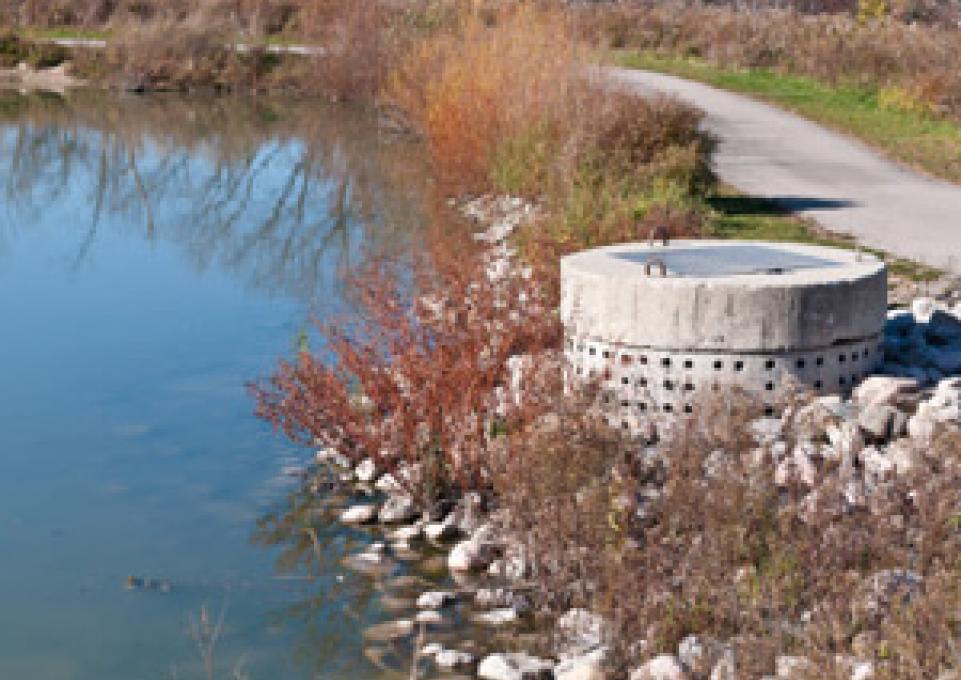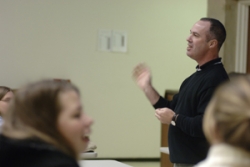
The Research Foundation for the State University of New York at Buffalo State has been awarded a $337,400 state grant for an Erie County Department of Environment and Planning stormwater mapping project. This project is part of an award made to Erie County from the New York State Department of Environmental Conservation.
 Kim Irvine, professor of geography and planning (pictured), will serve as director of the Western New York Coalition Municipal Separate Storm Sewer System (MS4) Mapping Project, which spans the next three years. Training begins the week of May 28 on the Buffalo State campus.
Kim Irvine, professor of geography and planning (pictured), will serve as director of the Western New York Coalition Municipal Separate Storm Sewer System (MS4) Mapping Project, which spans the next three years. Training begins the week of May 28 on the Buffalo State campus.
Buffalo State will hire three students at a time to help develop procedures for data collection of drainage systems throughout 42 municipalities. The Environmental Protection Agency requires that all municipalities develop a program that detects and eliminates improper wastewater connections into the storm sewer system. Collaborating with a university is a cost-effective way to complete this requirement.
The students will join three teams of municipal and county workers to track the exact locations of all manholes, drainage pipes, and drainage inlets into the system. They then will develop web-based maps to be housed on the Erie County web server.
“Some municipalities have good tracking and some don’t,” Irvine said. “An accurate, easily accessible storm sewer conveyance system map is critical for MS4s to successfully conduct an illicit discharge investigation.”
Mary Perrelli, GIS lab supervisor at Buffalo State, will serve as leader of the three work teams.
“The county specifically asked to work with Mary,” Irvine said. “We’ve developed a good partnership over the years with different government agencies because Buffalo State has developed a reputation for managing projects well.”
Additionally, the hands-on experience is a boon for students who not only hone their field skills but also make connections with government agencies and private consulting firms, Irvine added.
“Because of the experience students gain here,” he said, “they are able to go on to work for the U.S. Army Corps of Engineers, to go to graduate school, and to travel the world landing excellent jobs.”
